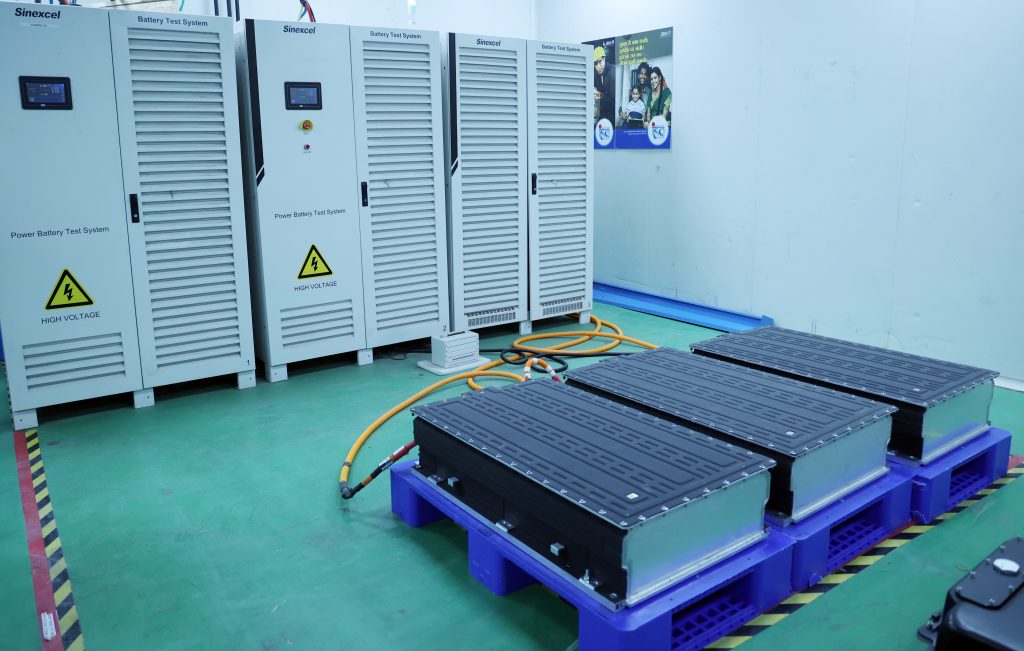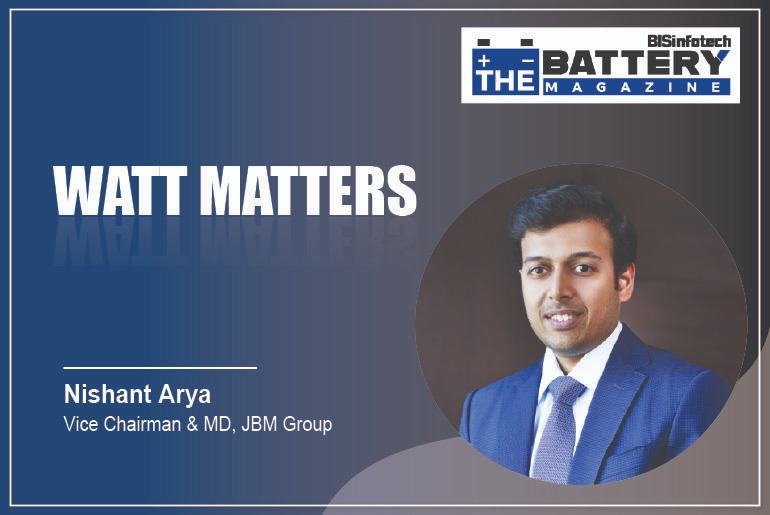The story of India’s electric mobility transition is incomplete without the name JBM Group—a company that has redefined itself from being a tier-1 auto component supplier into a trailblazer of clean, connected, and sustainable transport. In a country where mobility solutions must balance affordability, scalability, and innovation, JBM has not just adapted to change; it has led the charge by engineering an end-to-end EV ecosystem that stretches from electric buses and batteries to charging infrastructure and on-ground mobility operations.
Since 2018, JBM’s electric buses alone have traversed over 200 million e-kilometers, cutting more than one billion kilograms of CO₂ emissions—tangible proof of its commitment to India’s Net Zero 2070 vision. And with aspirations of serving 20 billion passengers and clocking 3 billion electric kilometers in the coming years, the Group is clearly thinking beyond milestones, towards legacies.
Against this sweeping backdrop of innovation and impact, Shweta, Sub-Editor of The Battery Magazine, engaged in an in-depth conversation with Mr. Nishant Arya, Vice Chairman of JBM Group. In this exclusive interview, he highlighted JBM’s bold bets on next-generation battery chemistries, large-scale manufacturing, lifecycle sustainability, and its moonshot vision for shaping the future of clean, intelligent mobility.
Let’s delve into the interview to explore more.
JBM Group has emerged as a frontrunner in India’s electric mobility transition. Could you share an overview of your journey so far and how your vision for clean and connected mobility has evolved over the past decade?
Over the past decade, we have transformed JBM Auto into an integrated e‑mobility solutions provider dedicated towards clean and connected public transport. Our end‑to‑end EV ecosystem solution spans manufacturing of EVs, lithium-ion batteries, fast charging infrastructure and on‑ground mobility operations, facilitating seamless transition towards electric mobility with confidence and at scale. By keeping passenger comfort, safety, affordability and innovation at the core, we are advancing India’s Net Zero 2070 vision and catalysing a shift from personal vehicles to modern and sustainable public transport. Since 2018, our electric buses have clocked over 200 million e-kilometers and reduced over one billion kilograms of CO₂ emissions. We aspire to serve 20 billion passengers and traverse 3 billion electric kilometers in the next 3-4 years. These milestones directly contribute to cleaner air, reduced carbon footprint, and enhanced public health, a legacy we aim to build for future generations.
With next-gen battery chemistries being extensively evaluated for future EV and energy storage solutions, what is JBM’s readiness on this front?
The next-generation battery chemistries will prove to be a strategic enabler towards India’s clean mobility and energy transition where lithium-ion, particularly LFP, remains the industry standard. We are exploring and evaluating other emerging chemistries as well. Our efforts are driven by strategic global partnerships and a strong in-house R&D team, focused on adapting these technologies to Indian operating conditions and use cases. We are expanding battery applications beyond electric buses into commercial EVs, last-mile mobility, and the energy sector, particularly Battery Energy Storage Systems (BESS) and solar-integrated solutions–critical for grid resilience and renewable integration. We have already localized the module-to-pack assembly process which has delivered substantial cost efficiencies and enhanced supply chain resilience. JBM Group remains committed to driving innovation, localization and sustainability in the battery value chain creating long-term value for the industry, the economy and the environment.

Earlier this year, JBM Auto secured a tender from the PM‑eBus Sewa scheme for 2,411 buses worth ₹12,900 crore. How is JBM scaling its infrastructure and production capacities to fulfill this order, and how will it support pan‑India expansion?
Winning the tender for 2,411 buses worth ₹12,900 crore under the PM eBus Sewa scheme reflects both our technological maturity and execution strength. We already have made significant strides in scaling up our production by establishing the world’s largest dedicated integrated electric bus manufacturing facility outside China, located in the Delhi-NCR region. This state-of-the-art plant boasts an annual production capacity of 20,000 electric buses, positioning us to meet the growing demand for sustainable transport solutions. Our robust order book of over 11,000 electric buses, deployed and under execution, further underscores our leadership in the domain. We have also set up India’s largest high-voltage lithium-ion battery manufacturing facility. At the same time we are strengthening pan-India depot electrification, charging infrastructure and after-sales service networks. This integrated scale-up ensures we can deliver with speed, reliability and lifecycle support across India.
With JBM’s transition from being a tier‑1 auto components supplier to an Electric Bus OEM, what has been JBM’s biggest internal transformation—technologically or culturally—in building end‑to‑end electric mobility capabilities in India?
We are proud to be the only company to have transitioned from being a Tier-1 auto systems supplier to an e-bus OEM. The biggest internal transformation has been building a culture of integration. As an auto systems supplier, JBM has proved its 4-decade expertise in engineering precision. Now, as an electric bus OEM, we are engaged with embedding softwares, energy systems and digital intelligence. Technologically, this meant creating in-house capabilities in batteries, drivetrains, telematics and AI. Culturally, it meant reorienting teams to think end-to-end – from design to passenger experience, from depot electrification to lifecycle sustainability. That holistic mindset is our true transformation.
How does JBM ECOBOLT envision integrating its smart battery systems and energy‑storage solutions beyond mobility—such as grid applications, micro‑grids, or charging infrastructure?
Our approach has been to build scalable and future-ready solutions across lithium-ion batteries, energy storage and charging infrastructure. Today, we have India’s largest high-voltage lithium-ion battery manufacturing facility in the Delhi-NCR region, with an annual installed capacity of 6GWh serving a wide spectrum from passenger vehicles to large-scale grid storage. Our expertise in end-to-end battery design, advanced battery management systems, software, hardware and utility-scale Battery Energy Storage Systems (BESS) ensures that our solutions are modular and technology-agnostic.
Our charging infrastructure network spans over 550 DC fast chargers currently powering around 50 electric bus depots in over 20 cities of India. Moreover, with the recent launch of our new age energy storage solutions for renewable power, telecom, BESS, CNI applications, micro-grid solutions, etc., we aim to ensure right quality of power availability and optimum total cost of ownership (TCO) for our customers. JBM is prepared to industrialize these technologies at scale with speed and reliability.

From R&D to deployments, what will be JBM’s ‘moonshot’ initiative over the next 3–5 years to shape India’s clean and connected future—particularly around EV‑batteries, lifecycle sustainability, or next‑gen intelligent vehicles?
Over the next 3–5 years, our moonshot is to deploy our integrated, data‑driven e‑mobility ecosystem across multiple geographies globally.
- EV platforms and intelligent operations: We will accelerate differentiated product innovation, including new electric platforms and digital fleet solutions, to enhance performance, availability and cost‑effectiveness in high‑duty public transport while strengthening software‑led, connected operations.
- Localization of critical systems: Deeper localization across key systems will improve reliability, responsiveness, and lifecycle economics, supporting faster deployments and more resilient supply chains.
- Lifecycle sustainability: Our execution will be guided by the 10 Pillars of Excellence- specifically sustainability, safety, quality, cost optimization, and digital intelligence, so fleets achieve measurable outcomes across the vehicle lifecycle, from daily dispatch to long‑term asset performance.
- Global scale, Indian core: As we expand internationally through regional alliances, fleet‑leasing partnerships and component localization alongwith collaborations with partners such as KazenMaier, FlixBus and Hitachi ZeroCarbon, we will preserve the dependability and cost discipline that have defined our solutions till date.



